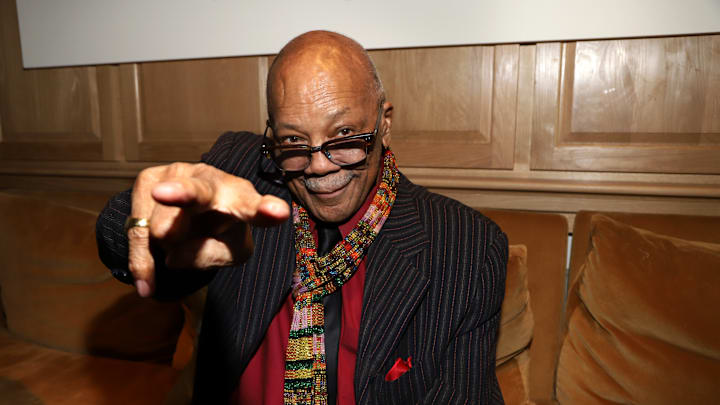Quincy Jones, a monumental figure in the music industry, passed away at age 91 in his Bel Air home on November 3, 2024. His legacy spanned over seven decades, encompassing genres like jazz, pop, and film scoring.
As his family said in a statement: "He is truly one of a kind and we will miss him dearly; we take comfort and immense pride in knowing that the love and joy, that were the essence of his being, was shared with the world through all that he created. Through his music and his boundless love, Quincy Jones’ heart will beat for eternity..."
Born on March 14, 1933, in Chicago, Jones began exploring music early, motivated by a vibrant community and his own persistent curiosity. In his autobiography, he described first discovering the piano: "I went up there, paused, stared, and then tinkled on it for a moment. That’s where I began to find peace. I was 11. I knew this was it for me. Forever..."
Relocating to Seattle during his youth, he honed his craft and befriended future collaborator Ray Charles. Charles himself had said, "I met a lot of very good friends here," in Seattle. "I liked the atmosphere. The people were friendly, the people took to me right away. Seattle is the town where I made my first record. And if you ever want to say where I got my start, you have to say that."
The beginning of Quincy Jones' success
Jones’ illustrious career began with roles as a jazz trumpeter and arranger. However, jazz obvious was not his only forte. For example, he went on to produce hit records for Lesley Gore in the early 1960s, such as "It's My Party." After first touring with bandleaders like Lionel Hampton, he gained prominence by composing film scores and producing albums.
This period saw him collaborate with legendary artists, including "First Lady of Song" Ella Fitzgerald, Peggy Lee, and Count Basie.
Fly me to the moon
In 1958, Jones first met Frank Sinatra during a Monaco concert arranged at the behest of Grace Kelly. As Jones put it: "If you didn’t know who Frank Sinatra was in 1958, you needed to trade in your ears… The man was bigger than life."
This meeting marked the start of a productive partnership. Jones arranged Sinatra’s "Fly Me to the Moon" in 1964, turning the song into a swing classic that would later become the first music played on the moon by astronaut Buzz Aldrin. Jones credited this collaboration as a pivotal moment in his career, with Sinatra eventually nicknaming him "Q."
Michael Jackson
Jones' music trajectory reached its zenith in the 1980s with Michael Jackson’s landmark albums, including Thriller (1982), which became one of the best-selling records in history. Their work was known for fusing funk, pop, and intricate production, significantly influencing contemporary music.
A brush with Charles Manson?!
A compelling but lesser-known aspect of his life was his close brush with danger during the infamous 1969 Manson family murders. In an interview, Jones recalled that he was nearly present at the scene where Sharon Tate and others were tragically killed.
His friendship with hairstylist Jay Sebring connected him to the group, though, fortunately, he ultimately did not attend that fateful gathering.
Movie and TV work
Jones’ film and television work also left an indelible mark, including scoring The Color Purple and producing the TV show The Fresh Prince of Bel-Air, which launched Will Smith's career. His efforts earned him numerous accolades, among them 28 Grammy Awards and an honorary Oscar.
As Academy president Janet Yang said in a statement: "Quincy Jones’ artistic genius and relentless creativity have made him one of the most influential musical figures of all time."
Quincy Jones’ influence transcended music, encompassing cultural activism and support for civil rights. His initiatives, like co-producing "We Are the World" in 1985 to aid famine relief, showcased his commitment to humanitarian efforts. Despite his immense fame, Jones was open about his roots and challenges. His storytelling spirit was captured in the 2018 documentary Quincy, co-directed by his daughter, Rashida Jones.
